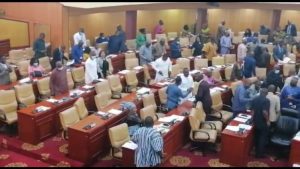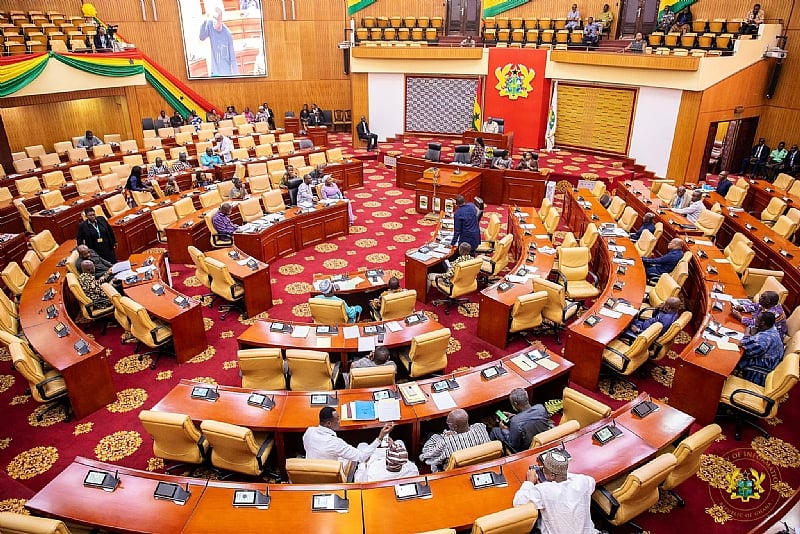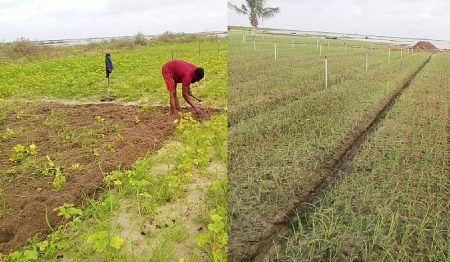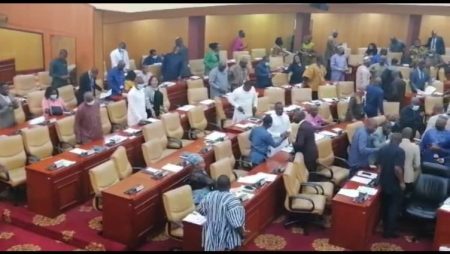The Ghanaian Parliament has encountered a procedural hurdle in its deliberation of the Ghana Medical Trust Fund Bill, 2025, informally known as the Mahama Cares programme. This legislation seeks to establish a dedicated financial resource to support Ghanaians facing critical medical conditions like cancer, stroke, kidney failure, and diabetes. The bill, presented under a certificate of urgency, signifies the Mahama administration’s prioritization of healthcare advancements and its commitment to alleviating the financial strain associated with specialized medical treatment. However, its passage has been temporarily stalled by the Minority’s objection regarding the lack of a quorum, the minimum number of members required to conduct official parliamentary business. This procedural challenge highlights the complexities of legislative processes and the importance of adherence to constitutional regulations.
The Minority’s intervention, spearheaded by First Deputy Minority Whip Habib Iddrisu, underscores the crucial role of checks and balances within the parliamentary system. Iddrisu contended that proceeding with a vote without a verified quorum would constitute a breach of parliamentary procedure, potentially invalidating the outcome. This assertion led to a formal petition to Second Deputy Speaker Andrew Asiamah Amoako, requesting a postponement of the decision. The Second Deputy Speaker responded by suspending the vote, demonstrating a commitment to upholding parliamentary protocols and ensuring the legitimacy of the legislative process. This suspension allows time for consultations and verification of the required quorum, emphasizing the principle of due process within the legislative framework.
The Majority Leader, Mahama Ayariga, responded to the Minority’s objection by acknowledging the validity of their concerns. Despite possessing the numerical advantage to proceed with the vote, the Majority chose to defer to the Minority’s procedural challenge, prioritizing collaborative decision-making over the assertion of numerical dominance. This decision reflects a commitment to fostering a more inclusive and cooperative parliamentary environment, where consensus-building is valued over partisan maneuvering. Ayariga’s statement emphasizes the importance of inter-party dialogue and compromise in achieving effective governance, suggesting a willingness to prioritize procedural integrity and collaborative legislative processes.
The temporary delay in the bill’s adoption represents a setback for the Mahama administration’s healthcare agenda. The Mahama Cares programme is envisioned as a flagship initiative aimed at addressing the substantial financial burdens associated with chronic disease management in Ghana. By providing a dedicated funding source for specialized medical care, the initiative seeks to improve access to life-saving treatments for vulnerable populations. The delay, while procedurally justified, underscores the challenges inherent in navigating parliamentary processes and the potential for procedural complexities to impact the timely implementation of policy priorities.
The establishment of the Ghana Medical Trust Fund carries significant implications for the healthcare landscape in Ghana. By securing dedicated funding for specialized medical treatments, the initiative aims to mitigate the financial hardship experienced by patients and families grappling with life-threatening illnesses. This dedicated funding stream would also strengthen the capacity of healthcare facilities to provide advanced medical services, leading to improved patient outcomes and a more robust healthcare system. Furthermore, the initiative’s emphasis on preventative care and early detection could significantly reduce the long-term burden of chronic diseases, contributing to a healthier and more productive population.
The temporary suspension of the vote on the Ghana Medical Trust Fund Bill serves as a reminder of the intricate nature of parliamentary procedures and the importance of respecting constitutional requirements. While the delay may temporarily impede the progress of the Mahama Cares programme, it also reinforces the principles of transparency and accountability within the legislative process. The Majority’s willingness to defer to the Minority’s concerns, despite possessing the numerical advantage, underscores the importance of fostering a cooperative and inclusive parliamentary environment. The eventual adoption of the bill would mark a significant step forward in strengthening Ghana’s healthcare system and improving access to vital medical treatments for those facing life-threatening conditions.














